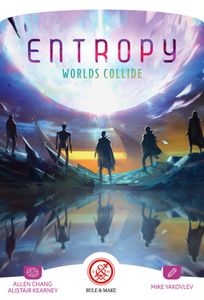A mystery novel aimed at kids, Ellen Raskin’s The Westing Game is perfectly charming even for (much) older readers. I tackled it to vet it for my daughter (who then said she wasn’t interested, but I bet she’ll come back to it at some point), finding myself caught up in how the author packed such a clever, intricate plot in a short novel. It won the Newbery Medal for the year’s best work of children’s literature; I think it’s only the fifth winner I’ve read in its entirety (along with The Giver, A Wrinkle in Time, The Graveyard Book, and Mrs. Frisby and the Rats of NIMH). Although it takes a temporary turn towards the dark in the middle, I’ll spoil it just a little bit to say that Raskin wraps up the entire story very nicely, and shows the reader just how many clues were right there the entire time for the characters and the audience alike.
The start of the book is a bit of a slow burn, but once you get about a third of the way into it, the pace picks up dramatically, once the long setup is done. Samuel Westing, a reclusive millionaire and owner of Westing Paper Products, dies right at the beginning of the book, and has set up an elaborate scheme for his sixteen “heirs” – most of whom are unrelated to him and surprised they’re even mentioned – to compete in teams of two for the prize of the inheritance. Many of the heirs have unspoken connections to Westing or his family; some are in the apartment building where the story takes place, Sunset Towers, under false names. Each team gets a set of five one-word clues and must try to follow the oblique instructions in Westing’s will to identify which of the heirs killed Westing and thus win the prize.

The real gift of this book is how Raskin has her characters playing with words, thinking about their meanings, the order, even messing with pronunciations or misspellings, all to try to decipher the clues. It’s a subtle encouragement to the reader to do the same – to expand one’s thinking about how we use words, and how tiny shifts can alter the meanings of anything we say or write, including, to pick one relevant example, the irregular will of an eccentric millionaire.
There’s one scene that might be disturbing for younger readers, although it’s eventually resolved in a way that should satisfy everybody. The remainder plays out as a fairly straight mystery novel, with a structure that certainly recalled Agatha Christie’s ‘bigger’ novels, where she uses a larger cast of suspects and moves the narrative around frequently with shorter chapters. The Westing Game feels in spots like a mystery for adults that was slimmed down – not dumbed down, just made shorter – for younger readers, given how quickly the narrative jumps, often with one character noticing something or coming to a conclusion right before the switch. It works, and might keep younger readers more engaged, although given how many mysteries I’ve read for adults I did get the occasional sense of watching a video with too many jump cuts.
Next up: I’m halfway through Elena Ferrante’s The Days of Abandonment, her second novel, written before the Neapolitan quartet that begins with My Brilliant Friend.




 Entropy is a light, diversionary game, although I think it aspires to a bit more. The clashes would seem to invite negotiation (and lying), but there’s no direct mechanism for this in the game, and no currency to use to try to ensure compliance or convince someone else to do what you want. There are certain character/action combinations that seem overly strong, such as the character who can play an action and force all other players to discard that action card … which, if you do it with Reset, kind of blows the other players out of the game.
Entropy is a light, diversionary game, although I think it aspires to a bit more. The clashes would seem to invite negotiation (and lying), but there’s no direct mechanism for this in the game, and no currency to use to try to ensure compliance or convince someone else to do what you want. There are certain character/action combinations that seem overly strong, such as the character who can play an action and force all other players to discard that action card … which, if you do it with Reset, kind of blows the other players out of the game.